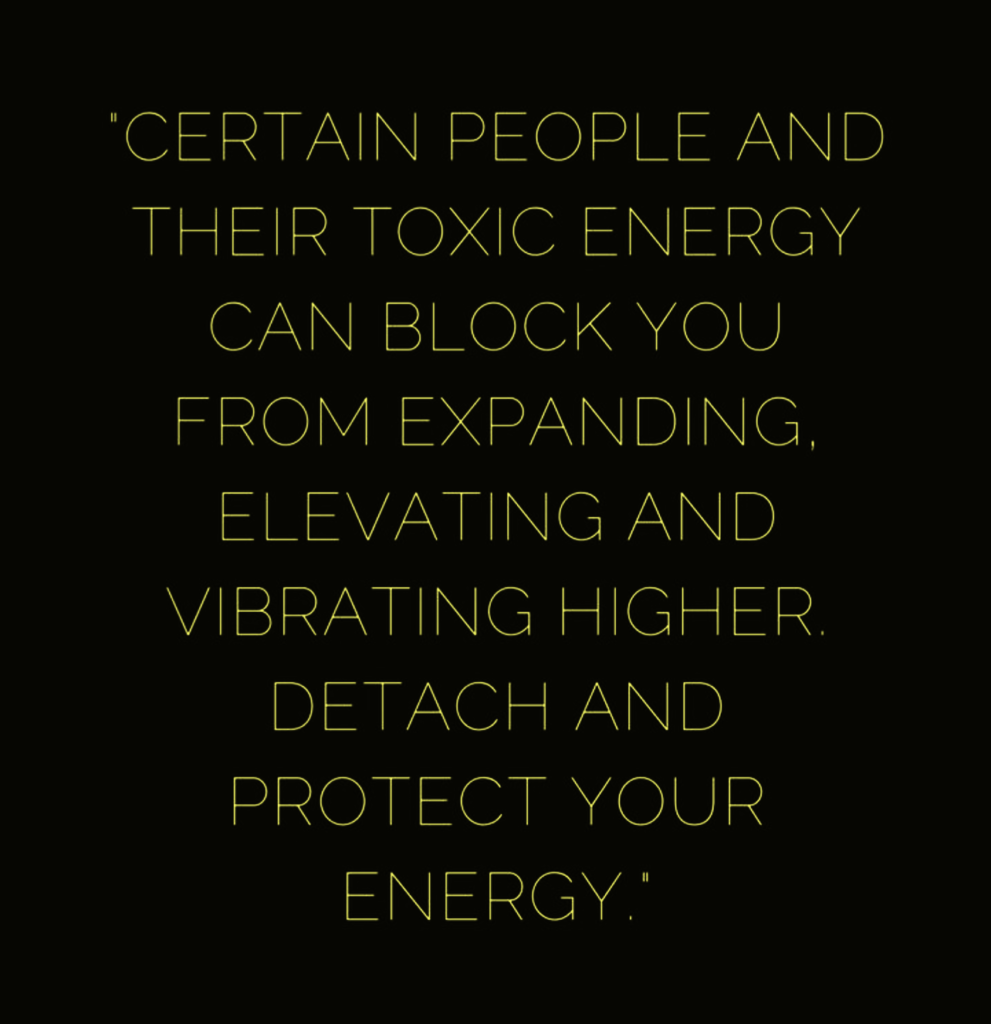
Rise & Grind 👑 🙌🏾
Listen the crowns we wear are heavy, and there are always something along our journey to test us. This week was important understanding how emotional/energy vampires work.
Key takeaways include the importance of self-awareness in identifying when our energy is being drained and the empowerment that comes from setting healthy boundaries. We’ve seen how this awareness not only preserves our mental health but also strengthens our relationships by helping us avoid or manage interactions with toxic people. And the thing is, toxic individuals in our lives don’t always have bad intentions. Sometimes they mean well, and sometimes they don’t, they come in many forms.
To wrap up this week I want to look at 3 real world examples of how we could encounter energy vampires in the real world. In the form of a coworker, friend, or family member.
1. The Overly Demanding Colleague
Imagine you work in an office where one of your colleagues constantly relies on you for help with their tasks. They frequently come to you with last-minute requests, ask you to cover for them, or even push their work onto you while they take credit for it. This colleague rarely acknowledges your efforts and often leaves you feeling drained and overwhelmed. Over time, their behavior causes you stress, diminishes your productivity, and leaves you with little energy to focus on your own responsibilities. This is a classic example of an energy vampire in the workplace, where their constant demands and lack of reciprocity drain your emotional and mental resources.
What’s the solution…. Boundaries.
1. Time Management: Set limits on how much time you spend listening to their complaints. Politely excuse yourself from the conversation after a few minutes by saying you need to focus on your work.
2. Redirect the Conversation: Encourage problem-solving by asking them what they plan to do about the issue rather than just venting. This can shift the focus from negativity to action.
3. Establish Boundaries: Let them know that while you value your working relationship, you need to keep the workplace environment positive and productive.
2. The Emotionally Needy Friend
Consider a friend who always turns to you during times of crisis but never seems to move forward. They frequently call or message you to vent about their problems, whether it’s about their job, relationships, or personal life. While it’s natural to support friends in tough times, this friend seems to be perpetually stuck in a cycle of negativity. They rarely take your advice, and no matter how much you try to help, their issues never seem to improve. This friend often leaves you feeling emotionally exhausted after every interaction, as their constant need for validation and support drains your emotional energy without offering anything in return. This is another form of an energy vampire, where their unending neediness and inability to self-regulate impact your well-being.
What’s the solution…. Boundaries.
1. Set Availability Limits: Clearly communicate when you’re available to talk and when you need personal time. For example, “I’m busy today, but we can catch up tomorrow.”
2. Encourage Independence: Gently suggest that they try handling some of their issues on their own first before reaching out to you. This helps them build self-reliance.
3. Balance the Relationship: Ensure the friendship is reciprocal. If they continuously drain your energy without giving back, consider reducing the amount of support you offer.
3. The Guilt-Tripping Parent
Imagine having a parent who often uses guilt to manipulate your actions. They frequently remind you of their sacrifices and make you feel responsible for their well-being. For example, if you have plans but they call needing non-urgent help, they might say, “After everything I’ve done for you, how could you leave me alone?” This guilt-tripping drains your emotional energy, making you feel trapped and exhausted as you constantly try to meet their demands to avoid shame or guilt. This is a classic example of an energy vampire within a family.
What’s the solution…. Boundaries.
1. Limit Engagement: Politely but firmly reduce the time and energy you invest in their manipulative behavior. If they start guilt-tripping, you can cut the conversation short or change the topic.
2. Set Clear Limits: Communicate your boundaries clearly. For example, let them know that while you care, you can’t always be available at their convenience. Say something like, “I understand your concerns, but I need to stick to my plans today.”
3. Maintain Emotional Distance: Remind yourself that their emotions are their responsibility, not yours. Practice detaching emotionally so their guilt doesn’t dictate your actions.
4. Assertiveness: Be firm but respectful in enforcing your boundaries. If they persist in guilt-tripping, calmly reiterate your stance without feeling obligated to justify yourself.
These boundaries allow you to maintain healthier, more balanced interactions with both your coworker and friend. By protecting ourselves we move towards greater satisfaction in both our personal & professional lives. Ultimately, understanding these dynamics isn’t just about avoiding negativity—it’s about creating space for more positive, supportive, and fulfilling connections. Let’s carry these insights forward, empowering ourselves to live with greater clarity, resilience, and intention.🙏🏾

Give our Discord a try with this temporary Invite: https://discord.gg/tnYHrUmu4S
Safe, laid back environment. Come for a positive morning vibe fit for royalty.



 Bitcoin
Bitcoin  Ethereum
Ethereum  Tether
Tether  XRP
XRP  Solana
Solana  USDC
USDC  Dogecoin
Dogecoin  TRON
TRON  Cardano
Cardano